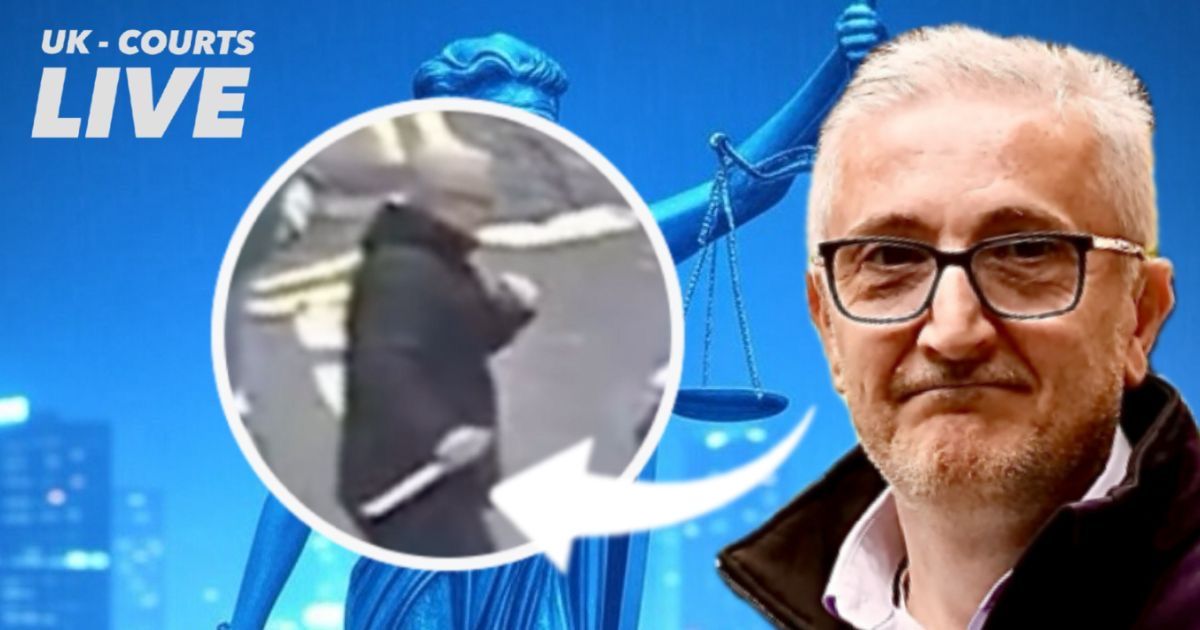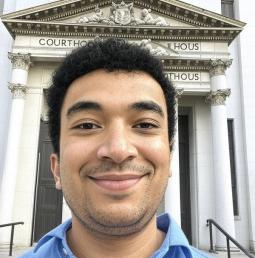🔴 LONDON QURAN BURNER ATTACKER AVOIDS PRISON TERM
A man who armed himself with a knife and launched an attack on a protester burning a Quran outside the Turkish Consulate in Knightsbridge has been spared jail.
Moussa Kadri received a 20-week suspended sentence after pleading guilty at Southwark Crown Court.
We believe this unduly lenient sentencing to be a miscarriage of justice, seeing no reason why this was not prosecuted as assault with a bladed article, and we ask: is this not an example of two-tier justice, emboldening those who wish enforce a de facto blasphemy law by intimidating anti-Islam protesters?
The sentence, passed at Southwark Crown Court by Judge Adam Hiddleston, came after 59-year-old Moussa Kadri admitted both assault and possession of a bladed article.
His remorse was accepted by Judge Adam Hiddleston, despite repeated earlier denials and deliberate attempts to mislead authorities, presenting a version of events in direct contradiction with the clear video evidence shot by Video Production News affiliate Cameraman Anthony Barnes - @Ay_audits-c4n who was live on the scene and fully witnessed the vicious knife attack
Kardi had threatened to kill Hamit Coskun, 51, who had set fire to the Quran while shouting inflammatory remarks about Islam, before launching the attack in Rutland Gardens, Knightsbridge, on 13 February.
Footage filmed by VPN associate cameraman AY Audits shows Kadri leaving the scene after a heated exchange, only to return minutes later armed with a large bread knife. He is seen brandishing the blade and making slashing motions towards the victim, who was punched, kicked and spat at during the attack.
Kadri then fled by car, discarding the knife, before returning to the scene. When arrested, he told officers there had been no knife at all. Later, he produced a photograph of a pallet knife and claimed this was what he had carried. The actual weapon has never been recovered.
Even when the case reached Crown Court, Kadri initially pleaded not guilty to possession of the knife despite the footage leaving no room for doubt. He eventually changed his plea, but only as it dawned on him that denial was untenable. To many, this seriously undermines any later claim of remorse.
Yet the charging decision meant the offence was dealt with as simple assault alongside possession of a knife in public, rather than the more serious offence of assault with a bladed article — a charge that carries significantly greater sentencing powers and more accurately reflects the circumstances of the attack.
Common assault is the most basic offence of violence. It covers any unlawful application of force or threat of force, even if no injury is caused. The maximum penalty is six months’ imprisonment in the Magistrates’ Court, or 12 months if committed to the Crown Court.
Possession of a bladed article is governed by Section 139 of the Criminal Justice Act 1988. It makes it illegal to carry a knife or other bladed weapon in a public place without lawful authority or reasonable excuse. The maximum penalty is four years’ imprisonment.
For a first offence, sentencing guidelines allow for anything from a high-level community order up to 12 months’ immediate custody, depending on the circumstances. Aggravating factors such as brandishing the knife, threats, or using it in the course of another offence push the sentence upwards. Repeat offences or use of the blade in a threatening manner can take the sentence well beyond two years, up to the maximum of four.
Assault with a bladed article (charged as an aggravated assault or under the Offences Against the Person Act 1861 if injuries are caused) carries far heavier sentencing powers. Producing or brandishing a knife during an attack increases both culpability and harm under the guidelines. Where a weapon is deliberately fetched and used to threaten or slash, the starting point would be immediate custody, with a likely range measured in years rather than weeks.
In this case, by charging Moussa Kadri with simple assault and possession of a bladed article, rather than treating the attack as an assault with a weapon, the court’s sentencing powers were restricted to months. That decision ultimately enabled the suspended sentence imposed.
Judge Hiddleston condemned the conduct as “disgraceful” and said the use of knives was a “curse on our community”. However, by treating the possession of a knife as separate from the assault, rather than prosecuting the attack as aggravated by the weapon, the court was limited to a suspended sentence of 20 weeks’ imprisonment with community service and rehabilitation requirements.
The facts show a sequence of conduct: threats made, a blade retrieved, slashing motions directed at a member of the public, disposal of the weapon, denial to arresting officers, presentation of false photographic “evidence”, and finally an untenable not guilty plea.
For a justice system that has consistently declared knife crime a priority, with sentencing guidelines stressing the expectation of immediate custody in cases involving blades, the outcome in this case is striking. The choice of charge and the suspended sentence imposed appear out of step with both the seriousness of the facts and the framework Parliament has set.
Kadri avoided custody altogether despite being filmed making threats to kill, arming himself, slashing at a protester, discarding the weapon, and denying his actions at every stage until conviction became unavoidable. The outcome leaves the clear impression that an offence widely understood by the public as a knife attack has been treated as something less serious.
The outcome raises serious questions about consistency in the application of the law. When a man seen on clear video retrieving a knife, threatening to kill, and slashing at a protester can avoid immediate custody, while repeatedly denying his actions and presenting false evidence, it is difficult to reconcile with the statutory framework designed to treat knife crime with severity. By allowing the offence to be prosecuted as simple assault and possession rather than assault with a bladed article, the system appears to afford leniency not justified by the facts. For many observers, this is a stark example of two-tier justice, signalling that those who target anti-Islam protesters with weapons may face reduced consequences — an outcome that undermines public confidence in the impartiality and consistency of the courts.
Well, that’s all for now. But until our next article, please stay tuned, stay informed, but most of all stay safe, and I’ll see you then.




